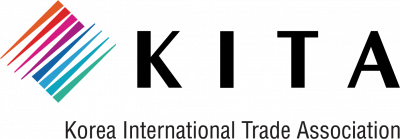Fortune Global 500 Companies Offer Suggestions for Open Innovation and Growth Strategies for Korean Startups
- Korea International Trade Association (KITA) and Korea Development Bank (KDB) Diagnose Global Industry Challenges with Top 10 Global Companies
- Fortune 500 energy companies discuss:
- Transitioning from Petroleum to Integrated Energy Company - Focus on Hydrogen, Biofuels, and Electric Vehicle Charging Infrastructure.
- Nuclear Energy, a Key Element for Energy Security and Low-Carbon Roadmap Implementation
- Promoting Hydrogen Pipeline Project Connecting North Africa and Europe - Fortune 500 motor company: Recognizing the Competitive Advantage of Domestic Supply Chain Management through the US IRA - Collaborating with Big Tech Companies like Google to Enhance User Convenience
SEOUL, South Korea, June 7, 2023 (Newswire.com) - Korea International Trade Association (Chairman Christopher KOO) and KDB Korea Development Bank (Chairman&CEO KANG Seog-hoon) organized the Fortune 500 Open Innovation Roundtable on Friday, June 2 at Trade Tower in Seoul, Korea.
The roundtable was attended by KITA Executive Vice Chairman JEONG Marn-ki, Executive Director of KDB Bank LEE Jun Sung, as well as executives from 10 global conglomerates.
Global executives discussed industry diagnosis and individual company strategies during the meeting.
An integrated energy company expert stated, "Since 2020, we have been transitioning from a petroleum-centric global energy company to an integrated energy company. We are committed to ensuring stable energy supply while working towards achieving carbon neutrality." She also mentioned, "We are actively interested in three promising investment areas: hydrogen and renewable energy, biofuels, and electric vehicle charging infrastructure."
Meanwhile, a representative from natural gas energy company, stated, "We believe that existing natural gas pipelines can be modified for hydrogen transportation. The most crucial aspect of implementing a hydrogen economy lies in enabling end consumers to conveniently use hydrogen throughout the entire process of storage, transportation, and utilization." In addition, Italy, similar to Korea as a country without natural resources, plans to import and export liquid hydrogen through port terminals. They are also working in collaboration with multiple countries, including Tunisia, to advance the SoutH2 Corridor project, which aims to connect North Africa and Europe through a hydrogen pipeline.
A representative from the state-owned energy company, stated, "Finland is one of the 16 countries in the Nuclear Alliance, which was established in February this year. We consider nuclear energy essential for ensuring energy security and implementing low-carbon roadmaps." He further emphasized, "We are actively developing not only large-scale nuclear power plants but also small modular reactors (SMRs). In addition to establishing funds, we are directly investing in startups and conducting pilot tests at our own facilities, among other various open innovation initiatives."
During the subsequent meeting, each company shared their open innovation strategies and made suggestions for the development of the Korean startup ecosystem.
A representative from the motor company stated, "We plan to invest approximately $50 billion in electric vehicles by 2026, and we believe that the US IRA law is strengthening our domestic supply chain management (SCM) and providing us with significant advantages." He further emphasized that the automotive industry is not just about vehicle manufacturing but also integrating advanced technologies into related services such as active sales, digital interfaces, and app stores. His company is actively collaborating with big tech companies like Google to stay competitive in this evolving industry.
An executive from the venture arm of a Fortune 500 company pointed out, "Korea has a limited pool of investors and a high tendency for risk aversion among investors." He further emphasized the need for coordination among institutions, stating, "Numerous investment roadshows are being independently conducted by Korean institutions in the United States. However, integrating these efforts would enhance efficiency from the perspective of local investors, requiring coordination among institutions."
SEO Hyuk-Jeen, the CEO of SkyRiver Ventures stated, "The eastern part of the United States is well-known for its deep tech sectors such as bioinformatics and artificial intelligence, with patents being issued at a rate of one per day. New York, in particular, is renowned for its expertise in finance and fintech. Interestingly, the top three leaders in the field of AI all hail from the eastern United States and Montreal, Canada. It is safe to say that the eastern region of the United States is a major hub for cutting-edge technology innovation."
"Through a series of events related to 'NextRise', we have seen that Fortune 500 global companies facing industrial transitions are focusing on hydrogen and nuclear power as future energy sources and open innovation and glocalization as future growth strategies," said JEONG Marn-Ki, Executive Vice Chairman of the Korea International Trade Association.
He further added, "By comparing the business environments of overseas and domestic companies, we plan to provide consistent policy recommendations to the government. We will continue to expand our collaboration with supporting organizations, such as the Fortune 500 Connect program, which promotes ongoing annual initiatives, including Next Rise, aiming to facilitate the inclusion of innovative domestic startups with promising technologies into the Global Value Chain (GVC). We will also foster extended collaborations for overseas technology verification (PoC) projects."
LEE Jun-Sung, Executive Director of KDB Bank, expressed his delight in hosting the Fortune 500 Open Innovation Roundtable. He emphasized the significance of gathering, stating, "As Next Rise enters its fifth year, we are pleased to witness its quantitative growth and globalization. Today's opportunity to share the future strategies of global companies with KDB Bank, which is responsible for finding new growth drivers to secure Korea's future, will greatly assist us in formulating our banking strategies."
Source: Korea International Trade Association (KITA)
